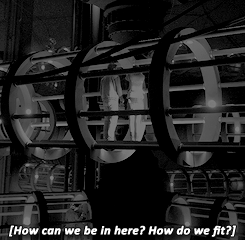That wasn’t the way I understood Horan’s comments, MM–maybe I didn’t read them as clearly. It was my impression that he is a universalistic Calv (which kind of nixes the bit about God ordaining some for eternal torment.) If I’m mistaken, Horan, please correct me. As for MM, I think he may feel (as I might as well) that your address to him of “Sir,” though I think intended as courtesy, might as likely be the stiff address of one foe to another (however respected) foe. At any rate, I love to see us all getting along with one another as much as possible. This is just an attempted “stitch in time,” not a rebuke at all.
I don’t have a problem with Universalistic Calvinism, Horan, though we do differ some in theology. We’re none of us going to agree on everything after all, and it is Christ who saves us, not our perfect theology. (Exceedingly good fortune for all of us.)
So, to the matter of special election. In Romans, I believe it’s pretty clear that (at least in Romans) Paul is talking about the election of the Jews as the recipients of the law, and he is making an attempt at reconciling the Jewish believers with the Gentile believers. There’s a great deal of amazing, soaring, beautiful theology in Romans, but the main thrust of the letter is to reconcile the “election” (the Jewish believers) with the Gentile believers and to exhort them to respect one another and work together rather than bickering over which of them were better, wiser, stronger, more correct in theology, etc. What it is NOT is a treatise on certain human beings having been chosen by God for salvation while others were (whether by direct intent or by default) selected for eternal perdition.
I think there’s also room though, to see Paul (particularly in his “run the race” analogy in (I believe in 1 Cor) hinting that some human beings are chosen to receive the prize of the “high calling of God in Christ Jesus.” The race Paul wants to win has a prize and not everyone wins that prize. Paul exhorts us to run so as to win. Traditionally, the “prize” has been seen as salvation. Reading Paul, I don’t get the idea that he is at all unsure about whether or not he is “saved.” Thus, I have all my life puzzled over what he meant by this analogy. Only since I began to believe in God’s universal salvation of all His creation have I begun to (I think) understand the metaphor’s meaning. I believe that the 'high calling of God in Christ is the calling to be a finder of the lost sheep–whether in this world we see around us or in some world we do not yet see. Some people in this life manifestly die in a state of wickedness. Some seem to die in what we would see as an indisputable state of grace (Paul, for example). Those who die in wickedness aren’t going to be magically transformed at death into model citizens of heaven (imo). They have to grow into full sonship just as the winners of that high calling have done. The high calling is, imo, to become the guides to the lost children. To be older brothers and sisters and teachers of the younger ones. ALL will eventually (and willingly) bend the knee to the Son of God, to the glory of the Father. Scripture requires no less.
Full disclosure–I am no more a fan of Calvin than I am of any other unrepentant persecutor of his/her fellow human beings–and particularly a persecutor of those of the house of faith. That said, I don’t find the doctrine noxious so long as it allows that the “set of the damned” contains no one and nothing at all. God’s glory and His goodness and love requires no less. ALL must be saved for ALL belong to Him. All that He created, He declared to be good. God is not a liar nor is His arm too short to save that which is His. He is infinite–omnipresent. This means there can be no other God. You cannot have two infinite Gods–that would be an absurdity. It follows then that ALL is His–and as all is His, nothing of it–not the tiniest speck–can ever be ultimately lost. Where would it go that He could not find it? In Him we live and move and have our being–there is nowhere to flee from His presence since His presence has no end and fills all infinity. In truth, He IS infinity.
Not sure how to tie this up. Let’s just say that I can’t see where you and I differ significantly aside from a slight variance in definition of free will vs determinism. Just for the record, though, I’m right. 





 Post’s. So how can our interaction from this point on be positive?
Post’s. So how can our interaction from this point on be positive?